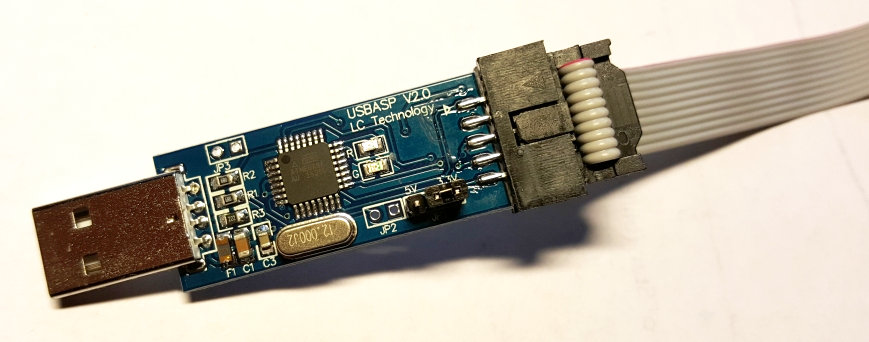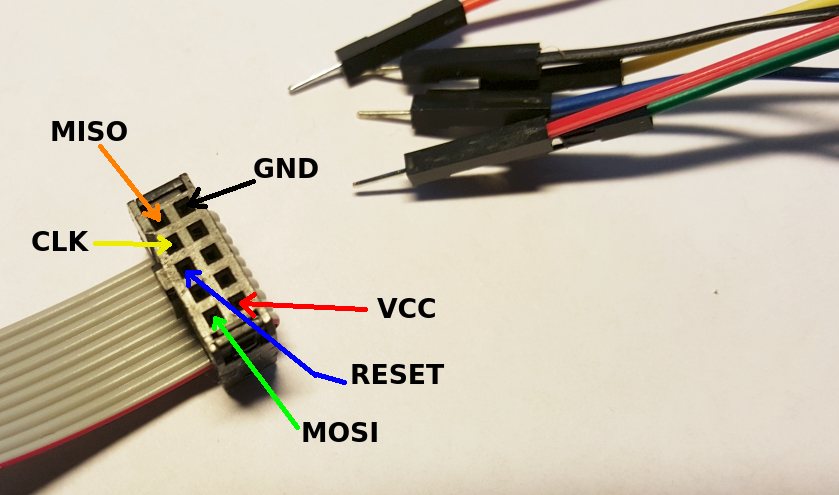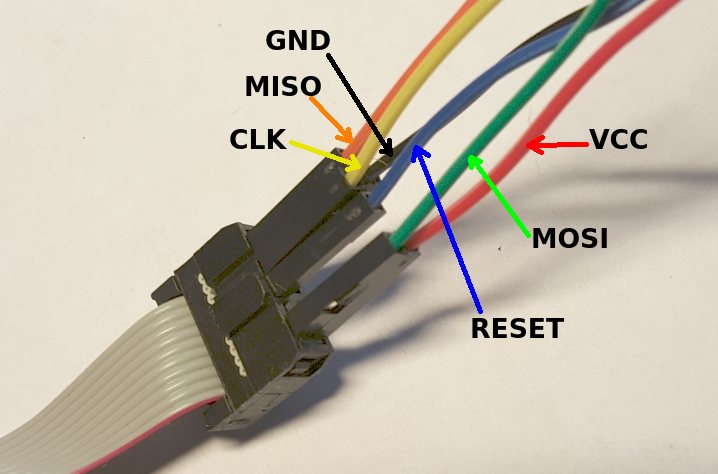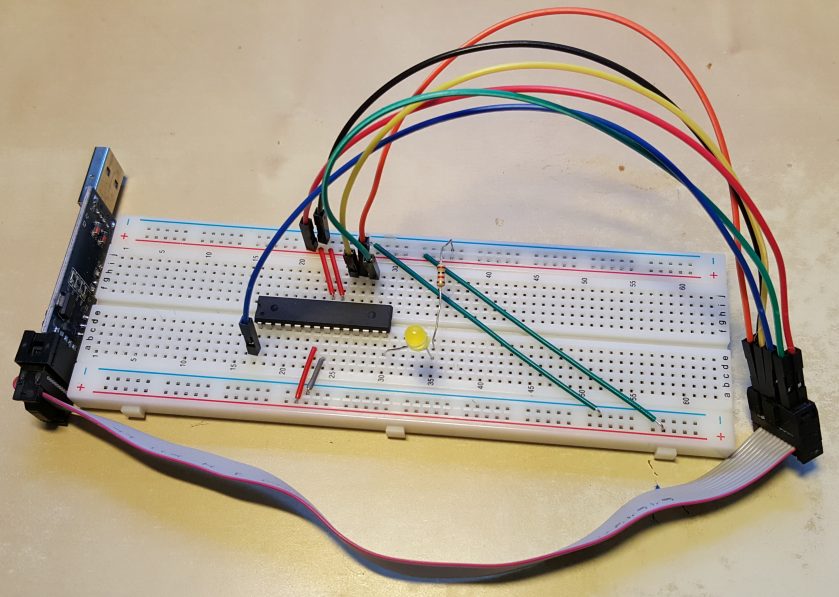Difference between revisions of "Using external programmers (USBasp)"
(→10 pin ISP interface) |
|||
| Line 35: | Line 35: | ||
* Orange: MISO (to AVR SPI's master input pin) | * Orange: MISO (to AVR SPI's master input pin) | ||
* Yellow: SCK (to AVR SPI's sync serial clock pin) | * Yellow: SCK (to AVR SPI's sync serial clock pin) | ||
| + | |||
| + | == Usage == | ||
| + | |||
| + | The next picture shows the cables connected to an ATmega328 on a breadboard connected to the USBasp programmer, ready to be used. | ||
| + | |||
| + | [[File:usbasp_atmega.jpg]] | ||
Revision as of 17:27, 13 April 2016
Sometimes one will need to program an Arduino board that does not have a programming interface or will want to build a custom one using and Atmel AVR chip. If the chip contains no bootloader or we do not have a serial interface we can use an external ICSP programmer, such as the USBasp. In this page we will explain how to use such programmer.
USBasp description
USBasp is a USB in-circuit programmer for Atmel AVR controllers. The programmer uses a firmware-only USB driver, no special USB controller is needed.
Features:
- Works under multiple platforms such as GNU/Linux, Mac OS X.
- Allows you to read or write the microcontroller EEPROM, firmware, fuse bits and lock bits.
- No special controllers or smd components are needed.
- Programming speed is up to 5kBytes/sec.
- SCK option to support targets with low clock speed (< 1,5MHz).
- 10 pin ISP interface (conforms to standard ISP 10-pin pinout).
More info: http://www.fischl.de/usbasp/
10 pin ISP interface
Male Interface:
Female Interface:
- Red: VCC
- Black: GND
- Blue: RST (to AVR reset pin)
- Green: MOSI (to AVR SPI's master output pin)
- Orange: MISO (to AVR SPI's master input pin)
- Yellow: SCK (to AVR SPI's sync serial clock pin)
Usage
The next picture shows the cables connected to an ATmega328 on a breadboard connected to the USBasp programmer, ready to be used.




